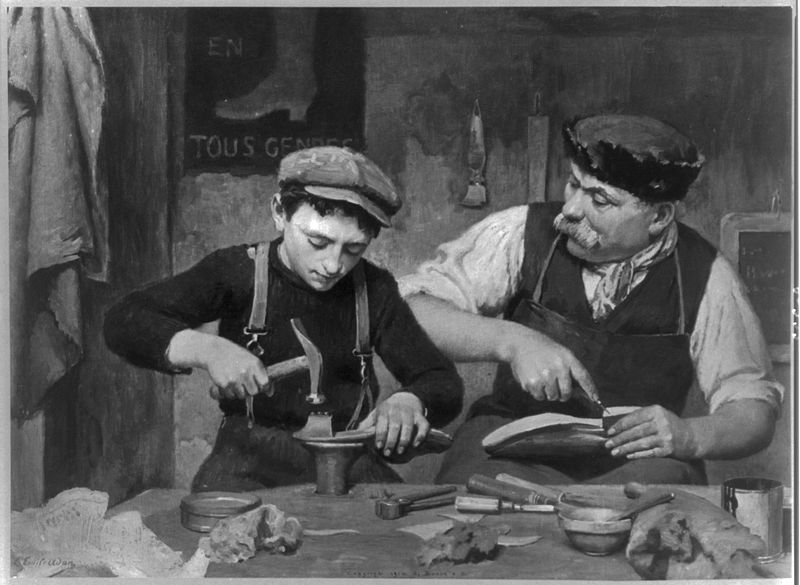The word “amateur” has picked up decidedly negative connotations over the years. People throw it around as an insult. “Ha! You amateur,” people say, as though we’re supposed to feel embarrassed about not yet having mastered something.
But isn’t learning new things and expanding our understanding of the world part of the fun in life? And aren’t we amateurs at anything we try for the first time?
Nonetheless, when the word is used today, it’s often derogatory.
I recently dug up the root meaning of the word “amateur,” and it gave me an entirely new perspective.
Let me share with you why I believe having an “amateur mindset” is actually a strength rather than a weakness.
Back to the Roots
“Amateur” is a French word derived from the Latin amātōrem, which means “lover,” or amāre, which means “to love.”
To be an amateur at something means to do it for the love of doing it, first and foremost.
For example, this approach to investing can be rather useful. In fact, it’s one that the most successful investors in the world embrace.
Warren Buffett is said to read for five to six hours each day. He devours corporate reports, newspapers and books.
Now, investing is an endlessly complex and ever-evolving game.
Even the best investors on Earth, who have committed their lives to the study of economics and finance, can get it wrong sometimes.
But investors who succeed in the long term seek to discover what they don’t know. They are always mining for new information, new insight… something to give them an edge, expose their blind spots or help them uncover a not-yet-obvious trend.
And falling in love with the game of investing is an important part of that edge. We tend to be curious about anything we love, don’t we? We want to understand those things better. We don’t tire of learning about them as easily. That’s exactly what the word “amateur” means – love.
As investors, our fascination with how companies, capital markets, consumer trends, global economic conditions and, most importantly, overall investor psychology impact stock market performance gives us a potential advantage in the market.
In the long term, especially through periods of uncertainty, an amateur-minded love of the game can keep us clear-eyed and improve our odds of success.
Oxford Club Members often ask, “Which service should I subscribe to? Which analyst should I follow?”
The answers aren’t the same for everyone, of course. But I can tell you that the most successful Oxford Club Members have developed a love for the game of investing and an amateur-minded appetite for learning more.
This allows them to look at things more objectively… to see new waves of innovation and the long-term potential of great companies all around the world… and to be opportunistic when others are afraid.
In fact, while many investors remain leery, in a recent Oxford Club poll, 85% of Members said they are either likely or very likely to invest and 71% named stocks as the greatest area of opportunity.
I suspect those numbers are only increasing by the day.
And I couldn’t agree more.
Amateur and Proud of It
No one is born with a love of investing. It’s the same with the greatest business leaders, sports stars and movie stars. Not one of them was born with a love of the thing they excel in. They pursued it. They honed it and cultivated their skill at it.
And because they remain amateurs in their hearts and are guided by a love for whatever game they play, they weather the storms. They see possibilities others don’t. They take brave actions.
This allows them to perform at a higher level, and this same mentality is very healthy for all of us as investors.
But how do you cultivate an amateur’s “love of the game” mindset? Well, I can offer a few ideas for your consideration…
- Start each week with a question. Before the markets open each Monday, choose something you’d like to better understand about investment strategy, global trends, valuation, a certain business or sector, a new type of investment, etc. Phrase it as a question, and let that question guide your interest throughout the week.
- Become fascinated with why people do what they do. The stock market is, in large part, a reflection of human emotion. If you become interested in people’s desires, habits, behaviors and feelings, you’ll become a better investor. Start by observing conversations in your local community. Notice how you feel personally. This is another rich area for exploration that will nurture your amateur mindset.
Stay humble. The stock market is amazing and complex, and it takes discipline and a thirst for good information to outperform market averages over time. There is so much to discover, and the rewards are well worth your interest and time. Lastly, it’s hard to have a love for something when you’re feeling afraid. If you feel hesitation or worry about investing your hard-earned capital, it helps to zoom out and consider the long term. Think about the trajectory of innovation and the trends that are unstoppable.
Remember, the markets correct regularly, and usually those corrections are shorter than we imagine.
If you pursue questions that interest you and remind yourself of the long-term trends when things feel uncertain, you’ll develop a love of the game that will empower you as an investor.
The next time someone calls you an amateur, you can lift your shoulders and thank them.
With an amateur mindset, you’re in the company of the very best in the world.
To Your Richest Possible Life,
Nathan





What do you think?